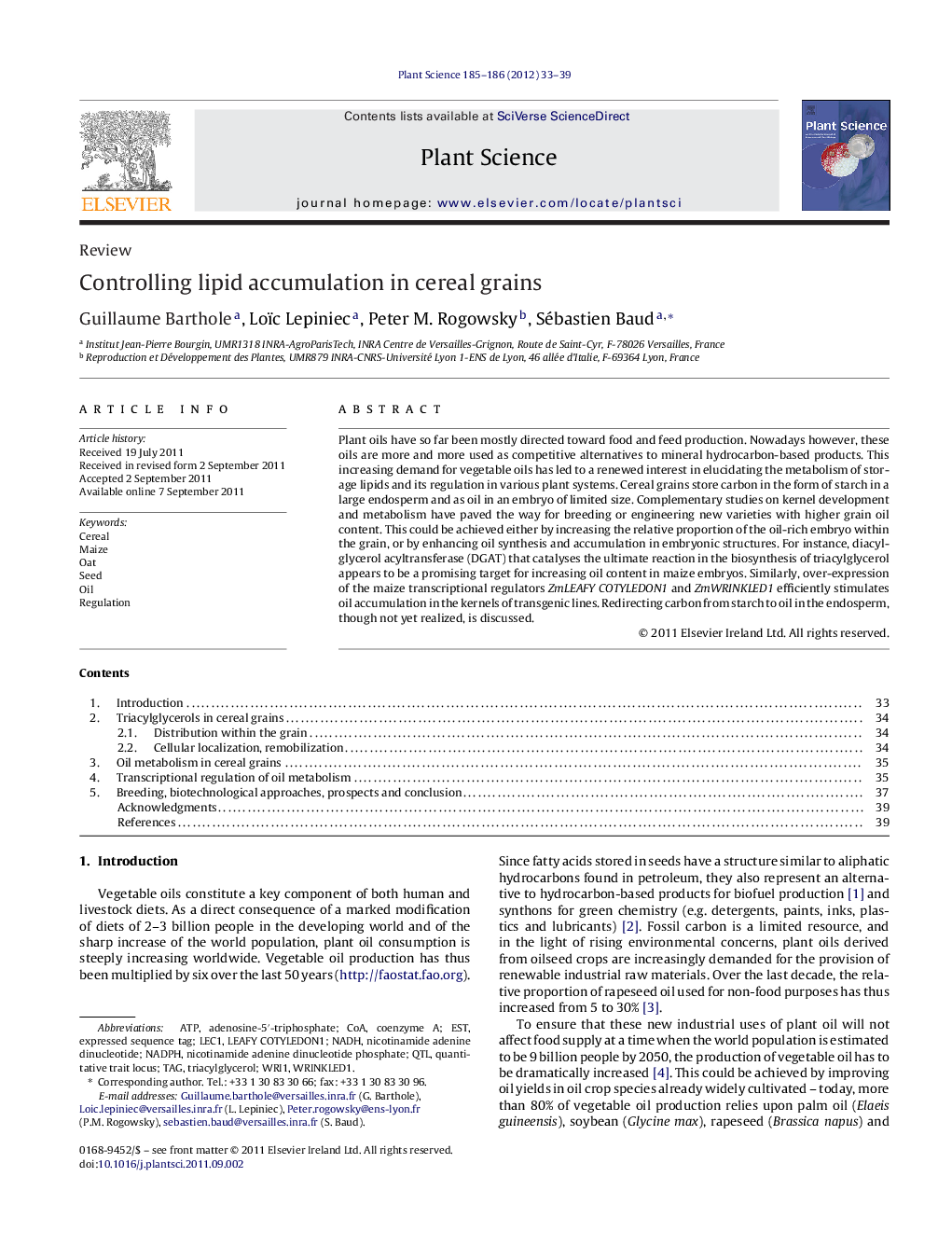| Article ID | Journal | Published Year | Pages | File Type |
|---|---|---|---|---|
| 2017437 | Plant Science | 2012 | 7 Pages |
Plant oils have so far been mostly directed toward food and feed production. Nowadays however, these oils are more and more used as competitive alternatives to mineral hydrocarbon-based products. This increasing demand for vegetable oils has led to a renewed interest in elucidating the metabolism of storage lipids and its regulation in various plant systems. Cereal grains store carbon in the form of starch in a large endosperm and as oil in an embryo of limited size. Complementary studies on kernel development and metabolism have paved the way for breeding or engineering new varieties with higher grain oil content. This could be achieved either by increasing the relative proportion of the oil-rich embryo within the grain, or by enhancing oil synthesis and accumulation in embryonic structures. For instance, diacylglycerol acyltransferase (DGAT) that catalyses the ultimate reaction in the biosynthesis of triacylglycerol appears to be a promising target for increasing oil content in maize embryos. Similarly, over-expression of the maize transcriptional regulators ZmLEAFY COTYLEDON1 and ZmWRINKLED1 efficiently stimulates oil accumulation in the kernels of transgenic lines. Redirecting carbon from starch to oil in the endosperm, though not yet realized, is discussed.
► Cereal grains accumulate oil in the form of triacylglycerols. ► This oil is mostly accumulated in the embryo. ► Recent studies have elucidated oil metabolism and its regulation, mostly in maize. ► This knowledge has paved the way for engineering new varieties with increased seed oil content.
